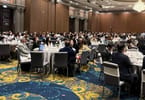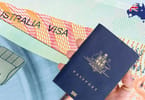Security and safety issues, mixed with issues around energy, ecology, and sustainability, have and will continue to play major roles in the development of travel and tourism.
These challenges do not pertain solely to the tourism and travel industry. The travel and tourism industries, however, are to a great extent dependent on disposable income. For example, when nations around the world face difficult economic hurdles, these economic problems disproportionately impact travel and tourism not only on the leisure side but even from the perspective of the business traveler. The same is true regarding issues of safety and security.
It is not unfair to state that when world economies catch a cold, the travel and tourism industry often catches pneumonia. Also due to the rise of electronic and virtual meetings in the post pandemic world, business travel is some of the first items to be cut from a business’ budget. Tourism and travel also must face additional hurdles. For example, the graying of much of the world’s travel public means new and innovative types of products will need to be marketed. On the positive side, terrorism has not dealt a fatal blow to international tourism, but both issues of crime and terrorism require additional precautions, training, and improved customer service. The issues of biosecurity (health security) in this post-pandemic world are another constant that the industry dare not ignore.
How the travel and tourism industry reacts to these ongoing challenges is more than a business issue; these are also ethical issues. Smart tourism businesses should not only pay attention to the commercial side of tourism but also to the ethical challenges that face the industry.
To help deal with some of the ethical issues in the travel and tourism world, here is a partial list of suggestions.
Jos olet epävarma, eettinen toiminta on parasta tehdä.
Don’t cut corners because times are hard. This is the time to build a reputation for integrity by doing the right thing. Make sure to give customers their money’s worth rather than appearing to be selfish and greedy. The hospitality business is about doing for others, and nothing advertises a place better than giving that something extra in a period of economic constriction. In a like manner, managers should never cut their underlings salaries before they cut their own. If reduction in forces is necessary, a manager should personally handle the situation, present a goodbye token, and never be absent on the day of a lay-off.
Kun tilanne vaikeutuu, ole rauhallinen.
People come to those in the travel and tourism industry for tranquility and to forget their problems, not to learn about business problems. Guests should never be burdened with a hotel’s economic difficulties, for example. Remember they are guests and not counselors. Tourism ethics requires that workers’ personal lives stay in their homes. If employees are too agitated to work, then they should stay home. Once one is at the workplace, however, there is a moral responsibility to concentrate on the needs of the guests and not on the needs of the workers. The best way to be calm in a crisis is to be prepared. For example, every community needs to have a tourism security plan. In a like manner, the community or attraction needs to train employees on how to handle health risks, travel changes, and personal security issues.
Kehitä hyvä henkinen henki koko joukkueelle.
The COVID pandemic’s challenges of the last few years are a good time for tourism managers to tell their employees how much they care. A manager should never ask an employee to do what s/he would not do, in fact, good managers at least twice a year, should get out of his/her office and do what his/her employees actually do. There is only one way to understand the problems that employees have when at work and that is by participating actively in their jobs and experiencing their frustrations.
Älä koskaan aseta kohtuuttomia odotuksia työntekijöitä kohtaan ja ole samalla rehellinen asiakkaille.
If the expectations are too low, they will result in boredom and ennui; if the expectations are too high, they result in frustration and cover-ups. Both sets of expectations are unreasonable and lead to moral dilemmas. Remember that once customers lose confidence in a locale, product, and/or business ethics, recovery is both difficult and expensive.
Kehitä matkailualan kumppanuuksia.
Visitors come to a “composite location” and not to a specific place. The tourism experience is a composite of multiple industries, events, and experiences. These include the transportation industry, the lodging industry, the locale’s competing attractions, the locale’s food offerings, its entertainment industry, the feeling of security we provide, and the visitor’s interactions with both the local population and employees within the tourism industry. Each one of these sub-components represents a potential alliance. In the twenty-first century, no one component can survive on its own. Instead, it is essential that a locale’s tourism industry define its common goals with each of these tourism sub-industries and know where flashpoints between may exist. Address these issues openly and develop the areas of commonality.
Siirry työntekijöiden arvioinnin ulkopuolelle.
Tourism professionals should not be seen as elementary school disciplinarians, but rather as partners seeking common goals. Tourism managers should work with their employees on performance goals. When employees begin to see a gap between what a manager says and does, then a certain level of dishonesty begins to creep into the relationship. Concentrate on what the employee and you can do to partner toward a common goal.
Kuuntele, mitä työntekijäsi ja asiakkaasi sanovat.
Often problems can be solved by listening fairly. In a like manner, honesty and open relationships are usually the best policy. Nothing destroys a tourism business as much as lack of credibility. Most guests/customers understand that things do go wrong from time to time. In those cases, admit there is a problem, own it, and deal with the problem. Most people are able to see through double-talk and in the future will not believe your company even when you are telling the truth. Remember that credibility means believably but not necessarily honesty. Don’t just be credible, be honest!
Älä koskaan tukahduta innovaatioita.
It is all too easy to put someone down or dismiss an idea out of hand. When people share ideas, they are taking a risk. Travel is in its essence about taking risks, and so travel professionals who are afraid of risks usually do no more than an adequate job. Encourage travel and tourism employees to take innovative risks; many of their ideas may fail, but one good idea is worth many failed ideas.
Kirjoittaja, tohtori Peter E. Tarlow, on puheenjohtaja ja toinen perustaja World Tourism Network ja johtaa Turvallisempi matkailu ohjelma.
MITÄ TÄSTÄ ARTIKKELASTA OTTAA POIS:
- Once one is at the workplace, however, there is a moral responsibility to concentrate on the needs of the guests and not on the needs of the workers.
- Also due to the rise of electronic and virtual meetings in the post pandemic world, business travel is some of the first items to be cut from a business' budget.
- If reduction in forces is necessary, a manager should personally handle the situation, present a goodbye token, and never be absent on the day of a lay-off.























